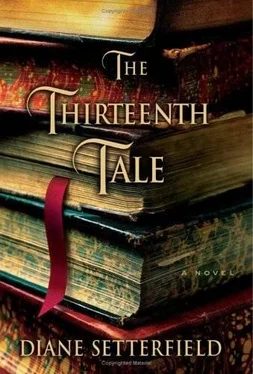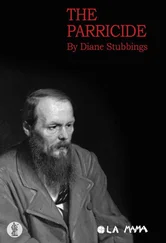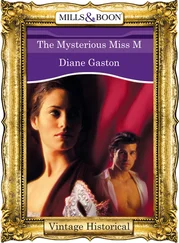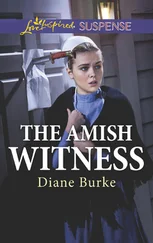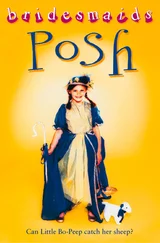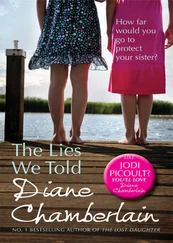One thing did occur to me, though, in one of those unfathomable side steps of the mind. I remembered what it was Aurelius had said the last time I was at Angelfield: "I just wish there was someone to tell me the truth." And I found its echo: "Tell me the truth." The boy in the brown suit. Now, that would explain why the Banbury Herald had no record of the interview their young reporter had gone to Yorkshire for. He wasn't a reporter at all. It was Aurelius all along.
The next day I woke to it: today, today, today. A tolling bell only I could hear. The twilight seemed to have penetrated my soul; I felt an unearthly weariness. My birthday. My deathday.
Judith brought a card from my father with the breakfast tray. A picture of flowers, his habitual, vaguely worded greetings and a note. He hoped I was well. He was well. He had some books for me. Should he send them? My mother had not signed the card; he had signed it for both of them. Love from Dad and Mother. It was all wrong. I knew it and he knew it, but what could anyone do?
Judith came. "Miss Winter says would now…?" I slid the card under my pillow before she could see it. "Now would be fine," I said, and picked up my pencil and pad. "Have you been sleeping well?" Miss Winter wanted to know, and then, "You look a little pale. You don't eat enough."
"I'm fine," I assured her, though I wasn't.
All morning I struggled with the sensation of stray wisps of one world seeping through the cracks of another. Do you know the feeling when you start reading a new book before the membrane of the last one has had time to close behind you? You leave the previous book with ideas and themes-characters even-caught in the fibers of your clothes, and when you open the new book, they are still with you. Well, it was like that. All day I had been prey to distractions. Thoughts, memories, feelings, irrelevant fragments of my own life, playing havoc with my concentration.
Miss Winter was telling me about something when she interrupted herself. "Are you listening to me, Miss Lea?"
I jerked out of my reverie and fumbled for an answer. Had I been listening? I had no idea. At that moment I couldn't have told her what she had been saying, though I'm sure that somewhere in my mind there was a place where it was all recorded. But at the point when she jerked me out of myself, I was in a kind of no-man's-land, a place between places. The mind plays all sorts of tricks, gets up to all kinds of things while we ourselves are slumbering in a white zone that looks for all the world like inattention to the onlooker. Lost for words, I stared at her for a minute, while she grew more and more irritated, then I plucked at the first coherent sentence that presented itself to me.
"Have you ever had a child, Miss Winter?"
"Good Lord, what a question. Of course I haven't. Have you gone mad, girl?"
"Emmeline, then?"
"We have an agreement, do we not? No questions?" And then, changing her expression, she bent forward and scrutinized me closely. "Are you ill?"
"No, I don't think so."
"Well, you are clearly not in your right mind for work."
It was a dismissal.
Back in my room I spent an hour bored, unsettled, plagued by myself. I sat at my desk, pencil in hand, but did not write; felt cold and turned the radiator up, then, too hot, took my cardigan off. I'd have liked a bath, but there was no hot water. I made cocoa and put extra sugar in it; then the sweetness nauseated me. A book? Would that do it? In the library the shelves were lined with dead words. Nothing there could help me.
There came a dash of raindrops, scattering against the window, and my heart leaped. Outside. Yes, that was what I needed. And not just the garden. I needed to get away, right away. Onto the moors.
The main gate was kept locked, I knew, and I had no wish to ask Maurice to open it for me. Instead, I headed through the garden to the farthest point from the house, where there was a door in the wall. The door, overgrown with ivy, had not been opened for a long time, and I had to pull the foliage away with my hands before I could open the latch. When the door swung toward me, there was more ivy to be pushed aside before I could step, a little disheveled, outside.
I used to think that I loved rain, but in fact I hardly knew it. The rain I loved was genteel town rain, made soft by all the obstacles the skyline put in its path, and warmed by the rising heat of the town itself. On the moors, enraged by the wind and embittered by the chill, the rain was vicious. Needles of ice stung my face and, behind me, vessels of freezing water burst against my shoulders.
Happy birthday.
If I was at the shop, my father would produce a present from beneath the desk as I came down the stairs. There would be a book or books, purchased at auction and put aside during the year. And a record or perfume or a picture. He would have wrapped them in the shop, at the desk, some quiet afternoon when I was at the post office or the library. He would have gone out one lunchtime to choose a card, alone, and he would have written in it, Love from Dad and Mother, at the desk. Alone, quite alone. He would go to the bakery for a cake, and somewhere in the shop-I had never discovered where; it was one of the few secrets I had not fathomed-he kept a candle, which came out on this day every year, was lit, and which I blew out, with as good an impression of happiness as I could muster. Then we ate the cake, with tea, and settled down to quiet digestion and cataloging.
I knew how it was for him. It was easier now that I was grown up than when I was a child. How much harder birthdays had been in the house. Presents hidden overnight in the shed, not from me, but from my mother, who could not bear the sight of them. The inevitable headache was her jealously guarded rite of remembrance, one that made it impossible to invite other children in the house, impossible, too, to leave her for the treat of a visit to the zoo or the park. My birthday toys were always quiet ones. Cakes were never homemade, and the leftovers had to be divested of their candles and icing before they could be put in the tin for the next day.
Happy birthday? Father whispered the words, Happy Birthday, hilariously, right in my ear. We played silent card games where the winner pulled gleeful faces and the loser grimaced and slumped, and nothing, not a peep, not a splutter, could be heard in the room above our heads. In between games, up and down he went, my poor father, between the silent pain of the bedroom and the secret birthday downstairs, changing his face from jollity to sympathy, from sympathy back to jollity, in the stairwell.
Unhappy birthday. From the day I was born, grief was always present. It settled like dust upon the household. It covered everyone and everything; it invaded us with every breath we took. It shrouded us in our own separate miseries.
Only because I was so cold could I bear to contemplate these memories.
Why couldn't she love me? Why did my life mean less to her than my sister's death? Did she blame me for it? Perhaps she was right to. I was alive now only because my sister had died. Every sight of me was a reminder of her loss.
Would it have been easier for her if we had both died?
Stupefied, I walked. One foot in front of the other, again and again and again, mesmerized. No interest in where I was heading. Looking nowhere, seeing nothing, I stumbled on.
Then I bumped into something.
"Margaret! Margaret!"
I was too cold to be startled, too cold to make my face respond to the vast form that stood before me, shrouded in tentlike drapes of green rainproof fabric. It moved, and two hands came down on my shoulders and gave me a shake.
"Margaret!"
Читать дальше
